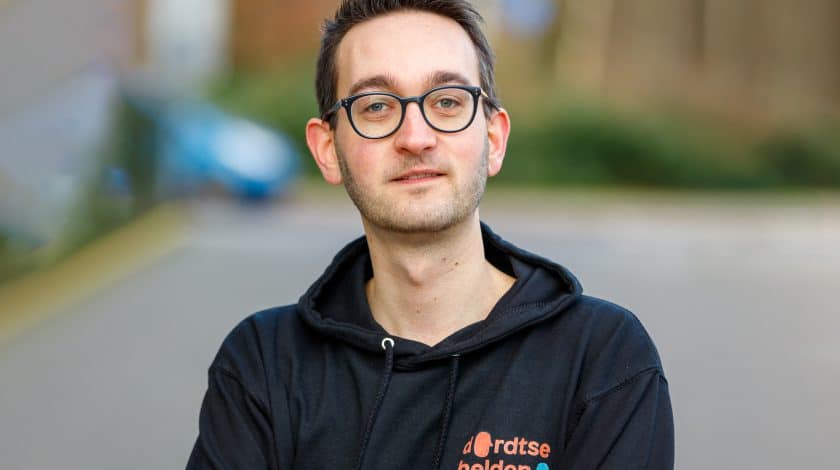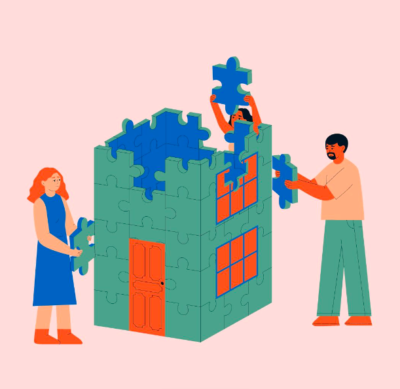


As Dutch reception facilities (AZCs) have been full for months, all throughout the Netherlands, asylum seekers have fallen victim to the reception crisis. Many people have been moved around every two or three weeks from crisis shelter to crisis shelter, leaving them in great distress. Asylum seekers in crisis shelters are excluded from society and live in social isolation. In Maastricht and all throughout the country, asylum seekers have organised protests against their living situations.
In August 2022, the Dutch central reception facility for asylum seekers in Ter Apel was full; consequentially, hundreds of asylum seekers were forced to sleep on the grass outside the reception facility, many without tents. The circumstances were so dreadful that Doctors Without Borders, for the first time in history, deployed a mission in the Netherlands. The organisation compared the circumstances to Camp Moria on the Greek island of Lesbos, infamous for its abysmal conditions.
The Dutch government responded to the crisis in two distinct ways. First, the government decided to halt family reunifications in an attempt to curb the influx of asylum seekers. However, this measure was reverted as courts ruled it was illegal because it violated Dutch and EU law. The second measure to bring relief to the asylum seekers in Ter Apel was to arrange crisis shelters throughout the country. Many of these locations were prepared last minute and many municipalities agreed to host asylum seekers for only a limited amount of time. As a result, many people have been moved around every two or three weeks, putting them through incredibly stressful situations. Shelters in sports facilities had men, women and families sleep in the same room with close to no privacy for weeks. The Dutch reception organisation COA has stated that the situation will realistically not be resolved before 2024.
Maastricht has been hosting asylum seekers in three crisis shelters for months now and the situation is dire. The people in these shelters have not had the opportunity to be registered because the Dutch immigration service (IND) is so understaffed that they cannot cope with the requests they are getting. For the people in the shelters, this means that they are not yet part of the asylum procedure and therefore also do not get any financial support. In recent months, the regular AZCs have become so full that even asylum seekers that have been admitted to the Dutch asylum procedure are required to stay in the crisis shelters, as opposed to getting to live in the facilities in an AZC. The legal limit for the IND to decide on an asylum application was raised from 6 to 15 months in August 2022, due to an ‘unexpectedly high influx of asylum seekers’. Despite this extension, there are almost 3000 asylum seekers that have been waiting for over 15 months, in violation of national and EU law, while almost 14.000 have been waiting for between 6-15 months. People all over the country wait in hopeless situations for an indefinite amount of time until a decision may be taken.
Although the Dutch government has been aware of the situation for years it has been structurally underinvesting in the reception of asylum seekers. As a result, the government is paying way more than it would have if it had invested in the reception centers earlier. The return on the money is also lower. Resulting in lower-quality reception facilities. Access to health care has been impaired, leading to major health risks for asylum seekers.
What we see is a pattern of violations of the fundamental rights of people who are already in vulnerable circumstances. In response, asylum seekers in AZCs all around the country, also in Maastricht, have organized demonstrations against their circumstances, speaking up against the long procedures, inadequate housing, the separation from their families and the impossibility to work. After months or years of insecurity, people are mentally and physically exhausted.
Some people have complained that demonstrations organized by asylum seekers are a show of ingratitude. However, nothing could be further from the truth. Where the Dutch authorities have fallen short in providing asylum seekers with the care and facilities they deserve, asylum seekers have reminded us of what the Netherlands, what Europe can be. Where we have fallen short in being welcoming and hospitable, the protests remind us of how we can and should be better. The American political philosopher Samuel Huntington wrote that some say America is a lie because it falls so far short of its ideals. He argues this is wrong. America is not a lie; it’s a disappointment and it can only be a disappointment because it is also a hope. The same is true for Europe and the Netherlands in how we approach asylum seekers. The hope lies in the promise of respect for human rights and treating people with dignity. Promises enshrined in our most fundamental legal documents. However, we do fall short. The treatment of asylum seekers and migrants and people that are perceived as being ‘other’ does not live up to these ideals, that is the disappointment. The protests around the country appeal to the better side of our nature and remind us that we should treat our brothers and sisters, our fellow human beings, with the love and respect we all deserve.
Going forward, there are several measures that the Dutch government should take to resolve this crisis and live up to the promises made. First and foremost the length of the procedure at the IND should be brought down. As mentioned above, the government has for years knowingly underestimated the number of asylum seekers that would arrive in the Netherlands and underinvested in the asylum procedure. It is now time to make good on that and structurally direct more funds to improving the speed and quality of the procedure. Furthermore, the IND needs to provide perspective to the asylum seekers in waiting. Even if not all applications can be processed right away, the IND should communicate about the timeline of individual cases giving people a point on the horizon. At the same time, it should become easier for asylum seekers to apply for jobs. Many are eager to contribute to Dutch society but are held back by bureaucratic obstacles.
A second way to resolve the current crisis is by passing the ‘Spreidingswet’ or so-called distribution law as quickly as possible. The law gives municipalities all around the country the obligation to host asylum seekers. Despite many flaws, the proposal for the law is the current best option for ensuring that we will not see a repetition of the summer of 2022 in which asylum seekers had to sleep outside due to a lack of beds. Although the proposal exists, it is now expected to only pass into law in January 2024, leaving Prime Minister Rutte to say that he cannot guarantee people will not have to sleep outside AZCs again this year.
If in times of crises, the foundations of structures are tested, then the current failure to provide asylum seekers with a reception in line with their fundamental rights means that we are failing and that the foundations of morality and empathy are shaking. The crisis is also an opportunity to show that we are better. That we can deliver on the promise of human rights and dignified treatment for anyone. That is true first and foremost for government institutions leaving thousands of asylum seekers in insecurity, these policies must change. But it is also a call to our own capacity for compassion and solidarity. What is our role in validating asylum seekers and helping them integrate into Dutch society? How can we ensure the living conditions of people in vulnerable circumstances improve and make them feel known, seen, and loved?
Aron Bosman is a lecturer in International and European law at Maastricht University.
Alex [pseudonym] lives in a crisis shelter.